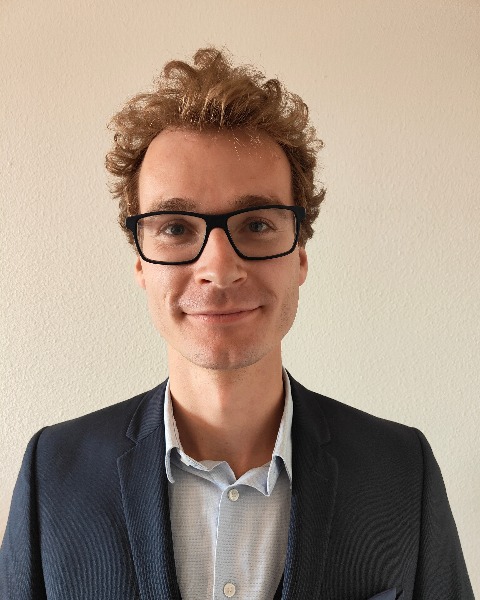Back
All-In Pass
FLEX Conference Pass
Session: Flexible MedTech & Wearables
Large-area Sensing Surfaces for Healthcare and Vitality Applications
Wednesday, July 13, 2022
1:00pm – 1:20pm
Location: Room 11

Lars Rikken, MSc
Biomedical Algorithm Engineer
TNO Holst Centre, Noord-Brabant, Netherlands
Speaker(s)
Holst Centre is an applied research institute that has been focused for nearly two decades on the development of flexible and thin electronic systems using industrially relevant fabrication methods. The major goal is to make technological contributions toward the industrialization of printed electronics systems so that future visions can become a reality.
The promise of implementing electronics into an ever increasing spectrum of form factors necessitates the development of systems that simultaneously bear the qualities of accuracy, conformability, ruggedness, and light weight. This is demanded in applications ranging from healthcare, automotive, and robotics. In these cases, traditional electronics based on rigid PCBs fall short of expectations or be unsuitable for a target application due to rigidity.
In order to make progress toward this vision, Holst Centre has been active in the development of printable and flexible sensors that can be printed atop complex surfaces; thus realizing “Large-Area Sensing Surfaces”. These surfaces largely consist of fully-printed circuitry and sensors on an elastomeric or thermoplastic carrier. This enables the conformal contact of the sensors to a surface, improving reliability and quality of data gathered by them without being obtrusive. Additionally, for cases where a printed solution may not be available, integrating components such as integrated circuits, temperature sensors, pressure sensors, or accelerometers is also possible.
With this unique toolbox, a variety of novel systems can be manufactured that can meet a host of needs. In this presentation, we would like to introduce our approach and show how we have applied our expertise towards developing the aforementioned “Sensing Surfaces” for healthcare and vitality applications, with the following application examples:
- Smart baby bed for vital signs monitoring of infants
- Smart mattress to monitor posture
- Smart office chair for workplace vitality
The standard PCB testing systems are insufficient to address the emerging needs imposed by conformal, free-form electronics such as our Sensing Surfaces. In this talk, we will also highlight the need for application-specific reliability testing for such novel systems, and provide some insights into how Holst Centre addresses this crucial aspect.
The promise of implementing electronics into an ever increasing spectrum of form factors necessitates the development of systems that simultaneously bear the qualities of accuracy, conformability, ruggedness, and light weight. This is demanded in applications ranging from healthcare, automotive, and robotics. In these cases, traditional electronics based on rigid PCBs fall short of expectations or be unsuitable for a target application due to rigidity.
In order to make progress toward this vision, Holst Centre has been active in the development of printable and flexible sensors that can be printed atop complex surfaces; thus realizing “Large-Area Sensing Surfaces”. These surfaces largely consist of fully-printed circuitry and sensors on an elastomeric or thermoplastic carrier. This enables the conformal contact of the sensors to a surface, improving reliability and quality of data gathered by them without being obtrusive. Additionally, for cases where a printed solution may not be available, integrating components such as integrated circuits, temperature sensors, pressure sensors, or accelerometers is also possible.
With this unique toolbox, a variety of novel systems can be manufactured that can meet a host of needs. In this presentation, we would like to introduce our approach and show how we have applied our expertise towards developing the aforementioned “Sensing Surfaces” for healthcare and vitality applications, with the following application examples:
- Smart baby bed for vital signs monitoring of infants
- Smart mattress to monitor posture
- Smart office chair for workplace vitality
The standard PCB testing systems are insufficient to address the emerging needs imposed by conformal, free-form electronics such as our Sensing Surfaces. In this talk, we will also highlight the need for application-specific reliability testing for such novel systems, and provide some insights into how Holst Centre addresses this crucial aspect.
